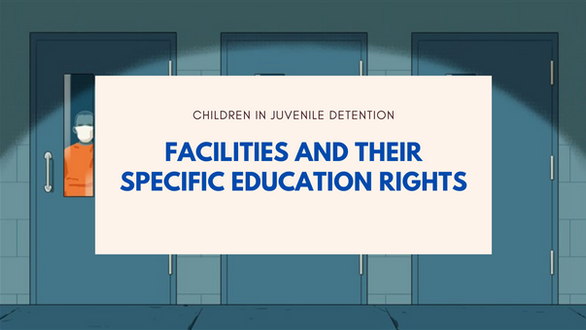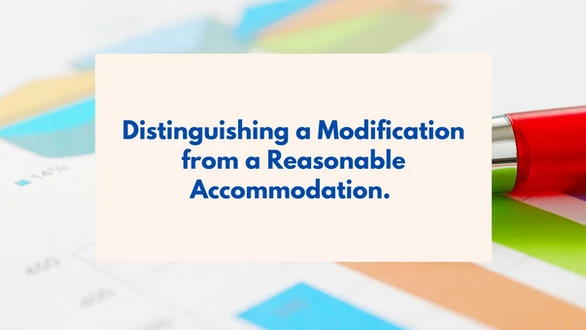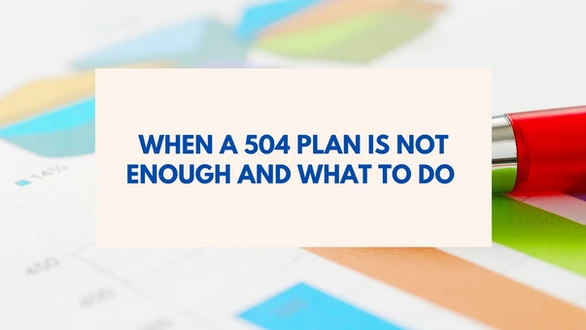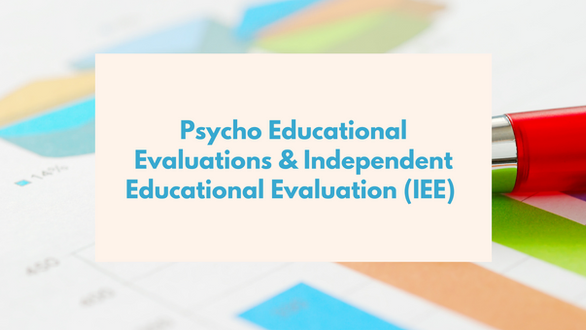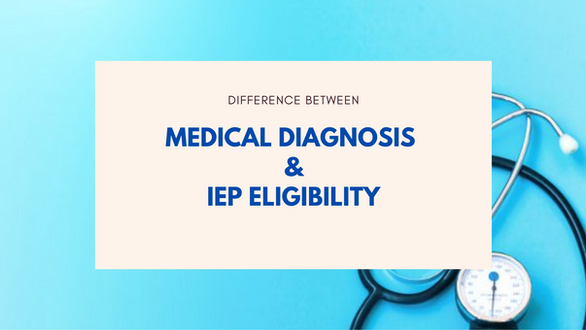INTRODUCTION
In the United States, roughly 54,000 youth reside in juvenile corrections facilities on any given day. Though precise figures are difficult to come by, it is estimated that the percentage of incarcerated youth with disabilities typically range from 30 percent to 60 percent, with some estimates as high as 85 percent. This means that in a class of 15 students, anywhere from 5 to 13 of those students are likely to have a disability, most commonly specific learning disabilities (SLD), emotional or behavioral disorders (EBD), intellectual disability (ID), or attention deficit hyperactivity disorders (ADHD).
Whether or not they are incarcerated, students with disabilities are entitled to the free appropriate public education guaranteed to them under the Individuals with Disabilities Education Act (IDEA).
This article highlights the specific rights of children with special needs in juvenile detention facilities. To simplify the facts we will take the questions and answers approach.
Are students entitled to special education inside a juvenile detention center?
Yes. Under the Individuals with Disabilities Education Act (IDEA), every child with a disability between the ages of 3 and 21 is entitled to a free and appropriate public education in the least restrictive environment, including those in a juvenile detention center. [20 U.S.C. Sec. 1412(a)(1)].
Juvenile and youth detention centers must provide special education and related services. The education and services must meet the student’s individual needs. All students with disabilities in the juvenile correctional system are entitled to be assessed for special education and qualify for protections under state and federal law.
What if a juvenile facility have limited space, staff, or other resources that prevents them from providing special education or the provision of related services.
Space, staffing, or funding issues aside, schools within juvenile facilities are required to provide special education and to provide related services consistent with students’ IEPs. [20 U.S.C. Sec. 1412(a)(1)]. Similarly, schools within juvenile detention centers must provide education in the least restrictive environment, which means that students with disabilities must participate in education with their nondisabled peers to the maximum extent appropriate. [20 U.S.C. Sec. 1412(a)(5)(A)].
If the juvenile court school is not providing your child with a free appropriate public education in the least restrictive environment, you have the right to file for Due Process hearing or a noncompliance complaint with the California Department of Education. Like neighborhood schools, juvenile court schools must provide notices of parental rights which include descriptions of Due Process and noncompliance complaints.
Can a student get assessed for special education inside a juvenile detention center?
Yes. Like public schools, juvenile court schools are required to identify, locate, and evaluate all children with disabilities who may need special education and related services. [20 U.S.C. Sec. 1412(a)(3)(A); 34 C.F.R. Sec. 300.111].
If your child is in a juvenile detention facility and has not been assessed, you can request an assessment. You should make this request in writing, include the date of the request, and the specific types of assessments you would like your child to receive. This request is called a “referral.” [Cal. Ed. Code Sec. 56029]. Under California regulations, all written referrals begin the assessment process. [5 C.C.R. Sec. 3021].
Once you have made a request for assessments, the juvenile court school must provide you with an assessment plan within 15 days under most circumstances. If you provide a referral within 10 days of the end of the regular school year, the assessment plan may be provided within 10 days of the start of the commencement of the next school year. [Cal. Ed. Code Sec. 56321(a)].
Once you receive the assessment plan, you have at least 15 days to respond to or approve the assessment plan. [Cal Ed. Code Sec. 56321(c)(4)]. Once you have signed and returned the assessment plan, the juvenile court school has 60-days to conduct the assessments and to hold an IEP meeting to determine eligibility and, if the student is eligible, to create an IEP document. [Cal Ed. Code Sec. 56344(a)].
Will my child’s IEP be implemented in a juvenile detention center?
Yes. A juvenile court school is required to provide special education and related services. It is also required to update a student’s IEP as appropriate. Juvenile court schools, just as neighborhood schools, are also required to provide progress reporting on IEP goals to parents while the student is in juvenile detention.
Will IEP meetings be held inside the juvenile detention center? Can parents or advocates attend them?
When placed in juvenile detention, the school must hold a transfer IEP meeting within 30 days. [34 C.F.R. Sec. 300.323; Cal. Ed. Code Sec. 56325(a)(1)].
IEP meetings can also be called on an as-needed basis by the parent. The school must hold an IEP meeting within 30 days of the request. [Cal. Ed. Code Sec. 56043(l), Cal. Ed. Code Sec. 56343.5]. It is best to make this request in writing so that you can keep track of the 30-day timeline.
Parents are still required members of the IEP and hold all rights under the IDEA when the student is in juvenile detention, unless a court has limited their rights or the student turns 18 years old. [34 C.F.R. Sec. 300.322]. Parents must be allowed to attend the IEP meeting.
If neither parent can attend an IEP meeting, the juvenile court school must still try to ensure parent participation, including by conference telephone calls. [34 C.F.R. Sec. 300.322(c); 34 C.F.R. Sec. 300.328]. The juvenile court school must ensure that the parents understand IEP meeting proceedings—this includes arranging for an interpreter for parents with deafness or whose native language is other than English. [34 C.F.R. Sec. 300.322(e))].
Parents must also be allowed to bring an attorney to the IEP meeting. [34 C.F.R. Sec. 300.321(a); 34 C.F.R. Sec. 300.322(a)]. Other individuals, including advocates, may also attend IEP meetings at the discretion of the parent or school if such individual has knowledge or special expertise regarding the student. [34 C.F.R. Sec. 300.321(a)(6)]. The determination of the knowledge or special expertise of these individuals must be made by the person who invited the individual to be a member of the IEP team. [34 C.F.R. Sec. 300.321(c)].
Students with disabilities in juvenile detention should also participate as a member of the IEP team. [34 C.F.R. Sec. 300.321(a)(7)]. Student participation can significantly assist the IEP team in identifying student’s needs.
Can a student get new assessments while inside a juvenile detention center?
Yes, juvenile detention facilities must evaluate youth with disabilities for special education. [20 U.S.C. Sec. 1412(a)(3)(A); 34 C.F.R. Sec. 300.111]. The same procedures described above in section 4 apply.
Even when a student is only in juvenile detention for a short time, the facility must still begin the evaluation process. The facility must coordinate with the school district that the student will attend when exiting juvenile detention to ensure completion of the evaluation. [34 C.F.R. Sec. 300.304(c)(5)]. However, please note that the timeframe for completing this evaluation is less clear: the assessment must be completed “as expeditiously as possible.” [34 C.F.R. Sec. 300.304(c)(5)]. Typically, assessments must be completed within 60-days of receiving parental consent for the evaluation. [34 C.F.R. Sec. 300.301(c)]. This time frame does not apply if the student transfers districts mid-assessment. [34 C.F.R. Sec. 300.301(d)(2)]. However, the school district the students transfers to must make “sufficient progress to ensure a prompt completion of the evaluation” and must arrange with the parent “a specific time when the evaluation will be completed.” [34 C.F.R. Sec. 300.301(e)].
CONCLUSION
As mentioned earlier, schools within juvenile facilities are required to provide special education and to provide related services consistent with students’ IEPs. However, the transfer of educational records can sometimes delay the implementation of a student’s IEP within a juvenile court school.
Families can prepare for this possibility by obtaining students’ records. Both state and federal law provide parents with the right to inspect and review educational records. [34 C.F.R. Sec. 300.613; Cal. Ed. Code Sec. 56504]. Under state law, a school district is required to provide a student’s records within five days of an oral or written request. [Cal. Ed. Code Sec. 56504.] It is best to make a written request to track ensure the school district follows the five-day timeline.

